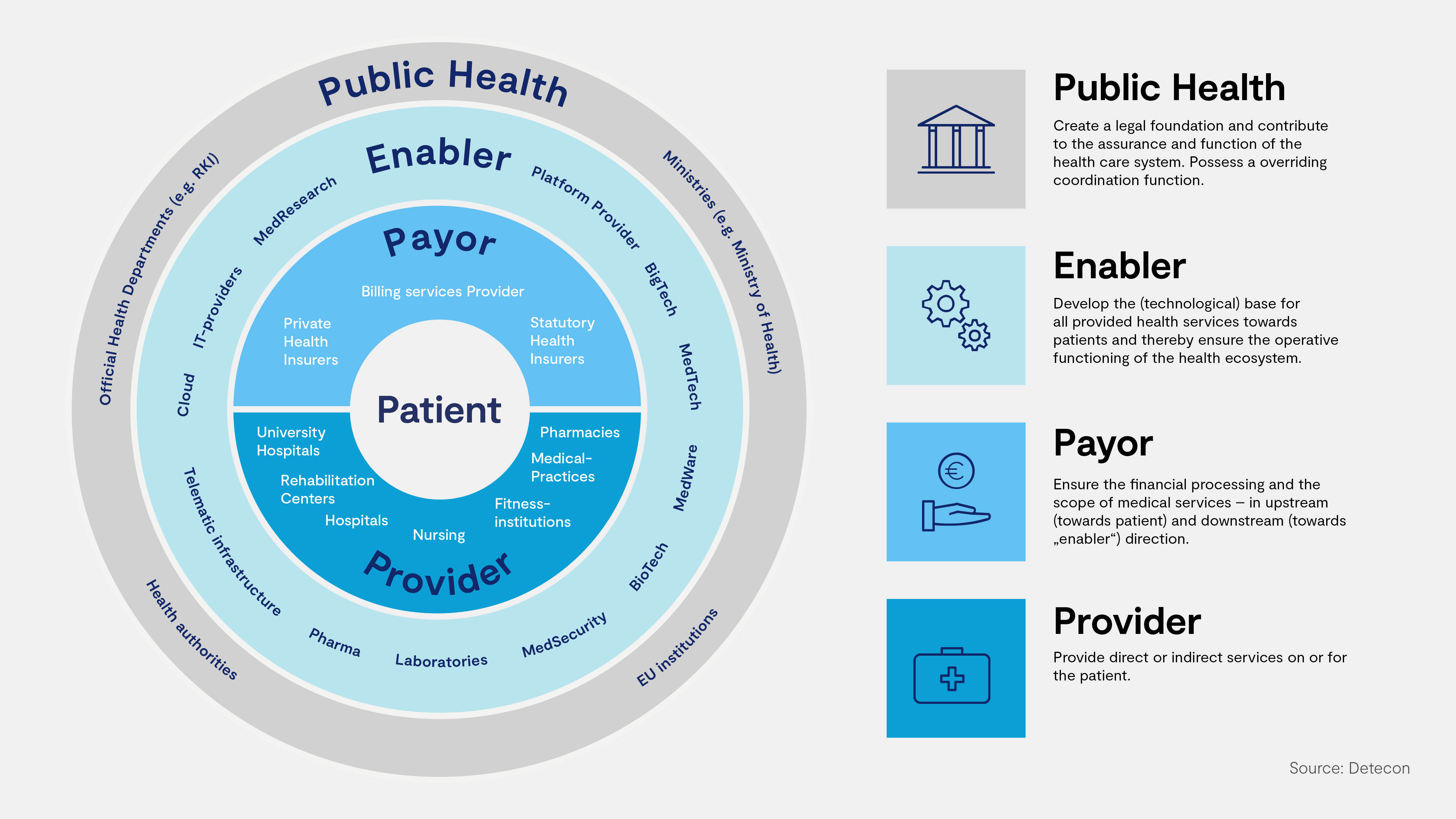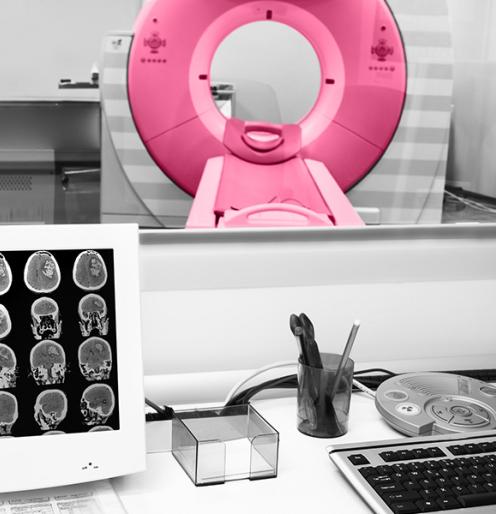- Home
- Consulting
- Industries
- Health
Health
Nothing is More Important than Good Health
The health sector faces a digital transformation that is changing many of the fundamental building blocks of medical care. In the age of innovative technologies, health care has to be reconsidered. Therefore, it is even more important to have a competent advisor with a high level of digitization competence and specific industry knowledge by your side. Detecon combines these by integrating classic management consulting with high technology competence from digital strategy to specific implementation through end-to-end consulting "Made in Germany".
As digitization experts, we support our customers from the four market segments Public, Enabler, Payor, and Provider with our holistic consulting approach, which is characterized by closeness, empathy, and expertise.
Market Segments in the Health Sector

Further Offerings
Get in touch with us











